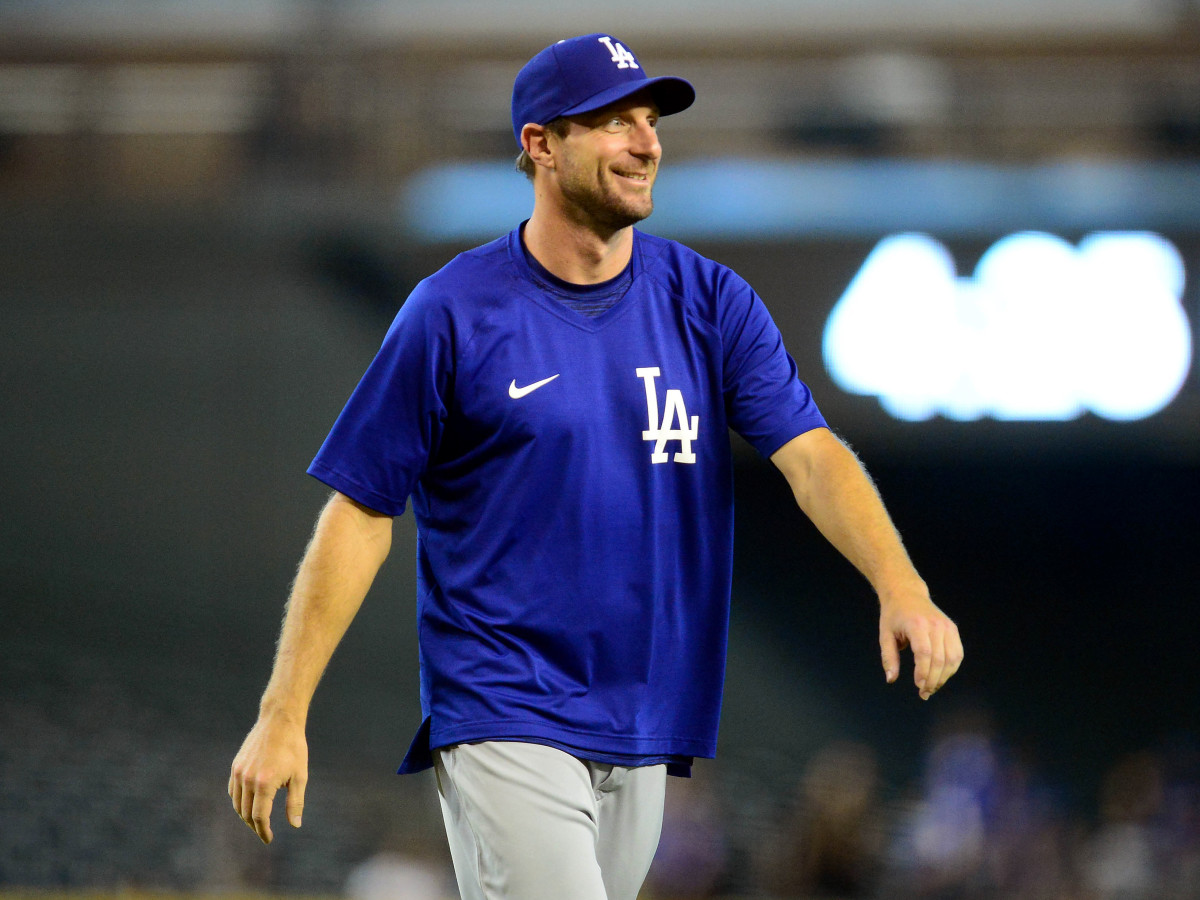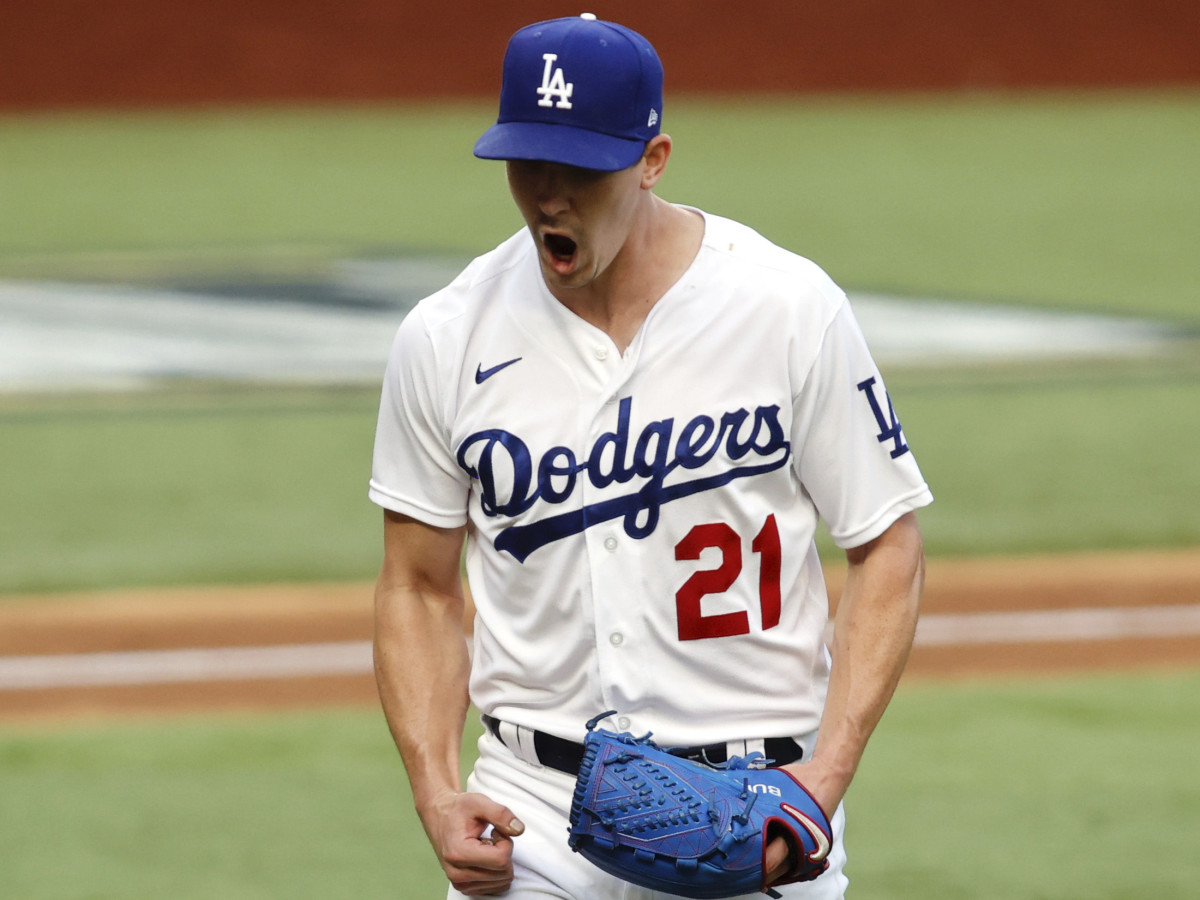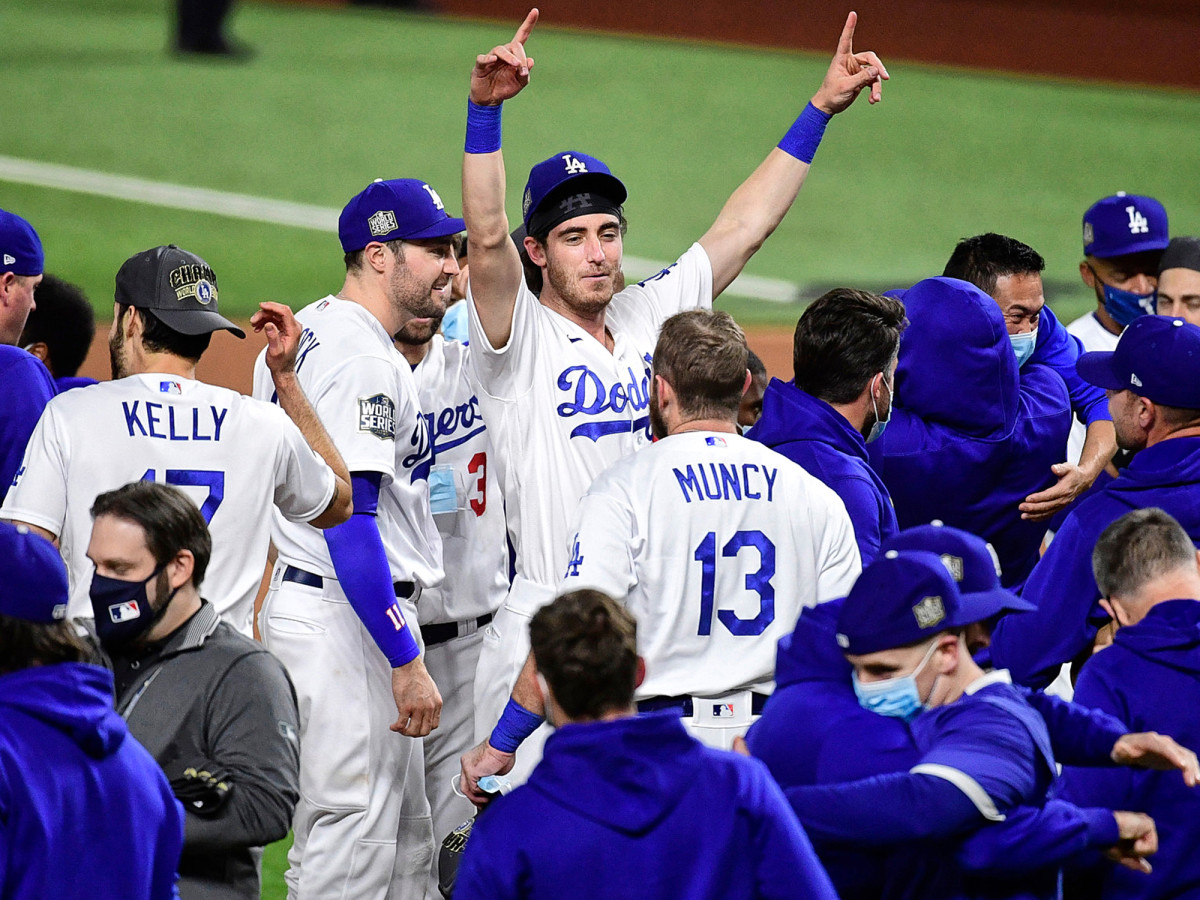How Baseball's Superteam Can Still Be Stopped
Welcome to The Opener, where every weekday morning you’ll get a fresh, topical column to start your day from one of SI.com’s MLB writers.
The Dodgers are the prohibitive favorite to win the World Series, which is an oddity in that they are a second-place team that has not been able to run down the Giants. That gives you an idea of the breadth of their talent; they make the standings moot even with two-thirds of the schedule gone.
How mighty are the Dodgers? Their pitchers have allowed the fewest earned runs and their hitters have scored the second-most. Their run differential (+165) is the best in baseball. They are 24–7 in games decided by five runs or more.

There are 28 active players who have won an MVP or Cy Young Award. The Dodgers have the market cornered with seven of them on their payroll. In all, their payroll includes 14 MVP and Cy Young Awards, nine players who have finished in the top 10 in MVP voting and five pitchers who have finished in the top five of Cy Young voting. They may be the most decorated team ever—and megatrade acquisitions Max Scherzer and Trea Turner haven’t even played a game for them yet.
And yet … we have learned that superteams can become mortal in October, especially in the expanded playoffs. Twenty consecutive World Series champions failed to defend their title, the longest drought without a repeat champion since the World Series began in 1903.
What could possibly derail Los Angeles as it's fortified to end that streak? Let us count the most likely ways baseball’s superteam is stopped.
Giants
I can’t understand why people still doubt the Giants can win the NL West. They have the largest home run differential in baseball (50 more homers hit than allowed), they don’t chase out of the zone, their pitchers control the count, avoid walks and throw ground balls better than just about any team, and their defense is so well positioned they turn batted balls into outs at a higher rate than any other team. This club is legit.
The Dodgers will need help, because they have only three games left with San Francisco, all on the road. If they don’t catch the Giants, the Dodgers will have to put on the line in one win-or-go-home game their huge payroll, the defense of their championship and their status as one of the most decorated—and favored—teams of all time. Now that’s pressure.
And the pressure starts with Dave Roberts and the front office number crunchers that advise him: With the season on the line, do you give the ball to Walker Buehler or Scherzer?

Padres and Reds
The Dodgers are 4–9 against their most likely opponents in a wild-card game. They have been held to a .191 batting average by those teams.
San Diego has found a proven path to beating the Dodgers. The Padres are 7–3 against Los Angeles while throwing Dodgers hitters only 39.5% fastballs.
The Dodgers have a very systematic offensive profile. They don’t chase outside the zone, they hunt fastballs in the zone and they swing with a slight upward bat path with the bottom palm extending up through the ball, not turning over. Only Oakland has a higher average launch angle among the 30 teams.
The slider is San Diego’s preferred antidote. The Dodgers are 0-for-39 against the sliders of Yu Darvish, Austin Adams, Craig Stammen and Ryan Weathers, and are hitting .097 against all of the Padres' sliders. Only the Royals and Cleveland see more sliders this season than Los Angeles.
Brewers
Finesse pitching doesn’t win in the postseason. Hits are hard to come by, so walks become even bigger danger points than usual. To navigate through rounds of the postseason you need pitchers with the kind of pure stuff to attack hitters in the zone and get them out in the zone. Guess who led MLB in that category last year: the team that won the World Series, the Dodgers, with a .241 batting average allowed.
This year the team best equipped at attacking the Dodgers in the strike zone is Milwaukee:
Toughest Team Pitching Staffs to Hit in Strike Zone
BA Against | |
|---|---|
1. Brewers | .244 |
2. Dodgers | .246 |
3. Giants | .251 |
MLB Average | .277 |
The Brewers have two of the three toughest pitchers to hit in the zone (min. 1,000 pitches), as well as Josh Hader (.182), Brad Boxberger (.188), Devin Williams (.224) and Corbin Burnes (.259)
Toughest Pitchers to Hit in Strike Zone
Pitcher | Team | BA Against |
|---|---|---|
1. Freddy Peralta | Brewers | .133 |
2. Jacob deGrom | Mets | .183 |
3. Brandon Woodruff | Brewers | .198 |
The Ninth Inning
Break down the stuff of Kenley Jansen this year and you will be impressed. He has found the 1.5 mph on his cutter that he lost last year. He is throwing his slider more often and it’s getting great results (0 HR, .125 average). He has cut his home run rate almost in half.
But he is throwing the fewest strikes since he was a 22-year-old rookie and he walks far too many batters (16.3%, about double the major league average). That’s a major problem when someone like Jansen can’t hold base runners and pitches only at the end of close games. You generally do not beat closers with clusters of hits. You beat them either with home runs and/or free bases (walks, hit by pitches, wild pitches, stolen bases, productive outs, etc.) Over the past five years, including the postseason, base stealers are 49-for-49 against Jansen.
Jansen has 22 saves and five blown saves. His conversion rate over the past three years is 81%, or below the major league average (88%).

The Wrong Jenga Piece
Mariano Rivera had made one error in his career when he threw away a bunt in the ninth inning of Game 7 of the 2001 World Series.
A ball in 2019 took a sharp bounce past an overeager Trent Grisham, then of Milwaukee.
As much as analytics have hacked the game—we state odds of making the postseason with the confidence of predicting rain—the beauty and even the very essence of baseball lies in the probabilities on the low side. The unexpected is what is best remembered.
The Dodgers should know this postulate well. Last they were losing NLCS Game 7 to the Braves, 3–2, and in danger of falling further behind. Atlanta had runners at second and third with no outs in the fourth inning.
That’s when the Braves pulled the wrong Jenga piece. Nick Markakis hit a grounder to third base. Dansby Swanson, the runner at third, broke for home. He was thrown out. Austin Riley, the runner at second, broke haltingly for third. He, too, was thrown out. The Braves ran into outs at home and third on the same play. They never scored again. Enrique Hernández and Cody Bellinger hit home runs, and Los Angeles won the pennant.
More MLB Coverage:
• Chaotic Trade Deadline Changed the Game
• MLB Trade Deadline Winners and Losers
• Dodgers Swing All-Time Deadline Triumph With Scherzer-Turner Trade
• Yankees Boost Lackluster Offense With Anthony Rizzo Trade
